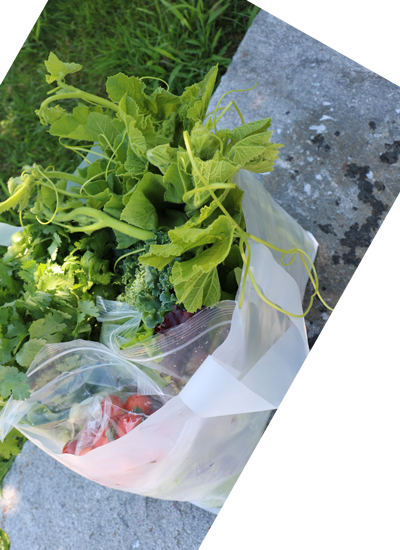What Makes Farming So Attractive
This blog is from World Farmers' Intern Blog Series, featuring reflections written by 2017, 2018 and 2019 summer high school interns from Nashoba Regional High School. To read the full series, visit our blog page www.worldfarmers.org/blogs, and stay tuned!
Hellen's Reflection Blog
By Hellen Muma, Nashoba Regional High School Summer Intern, Summer 2019
On Saturday, August 17, I had the pleasure of accompanying one of World Farmers' Kenyan farmers, Josephine, to a Managu demonstration at a tropical food market in Roxbury, Massachusetts. Since I am familiar with the crop through my own Kenyan culture, it was not difficult to express how versatile and delicious the crop was to the local buyers. Although, many people were not familiar with the crop's name, and compared it to a similar looking crop called Lalu. Some noticed the crop and mentioned the name in their home language. Nonetheless, people were interested in learning what it was. The general demographics for that area were Caribbean, Hispanic, Latino, and African.
Josephine and I set up her table near the main entrance to the store so that people would see us when they walked in. We would get people who would occasionally stare at the crop and simply walk away, and some that would ask questions like “what is this, how do i cook it, where do you grow it?” We would say, “This is a crop called Managu, it's grown in parts of East Africa. You can cook it the same way you cook spinach, and even add it to smoothies. It has a slight bitter taste when you cook it, but does not taste like anything when you blend it.” Josephine would do most of the talking since she was more of an expert than I was, since she grew it. I would forget to mention that it was grown by local farmers in Lancaster at the Flats Mentor Farm, which supports immigrant and refugee farmers. I felt like that was important to help bring them closer to the idea that these crops don’t just appear at the store from nowhere.
Both of my parents are farmers. They’ve been farming their whole lives. Farming is never easy. It's both a challenge to grow the crops, and then to find a market for them to be profitable. It also requires an enormous amount of physical integrity. Cut, cracked, and bleeding fingers are just the start of the physical hardships of farming. Over the course of the first full season, my parents spent long days bending, squatting, grabbing, twisting, pulling, pushing, cutting, walking, running, jumping, digging, pounding, lifting, tossing, catching, and reaching. At the end of each day they’re left with aches, pains, cuts, cracks, blisters, infections, stings, and sprains. Most often, you have to put trust in the soil to help nurture the crops, and sometimes the soil doesn’t always hold up its end of the promise. Weather is also something we can’t control but determines the destiny of the plants. If there is too much water, the plants drown and die; if there is not enough water, the plants dry up and die.
Another thing I learned while at the store was that food helps people connect back to their roots. Sometimes when you have to relocate your whole life somewhere else, you tend to lose some of the things you love the most, which includes the foods you eat. So when we develop establishments like the tropical food market that allows people to buy foods that are not typically common here but common in their homeland, it brings a sense of peace to the consumer.


